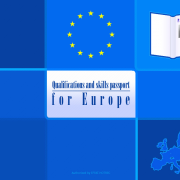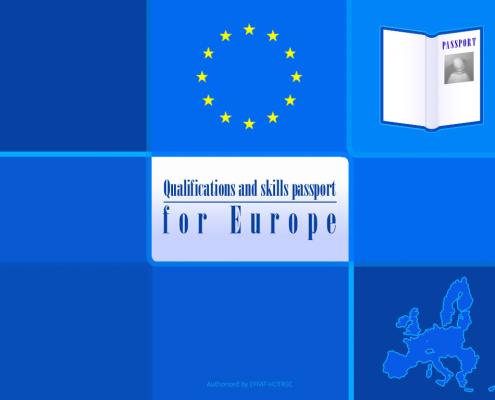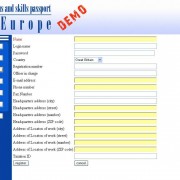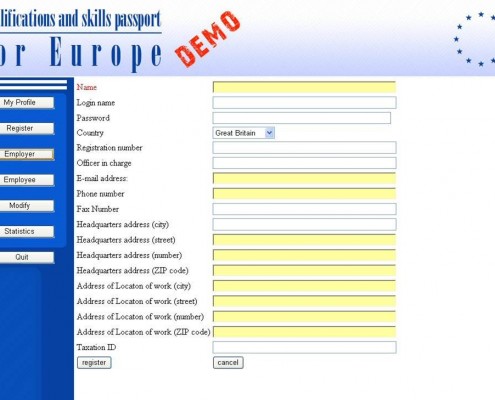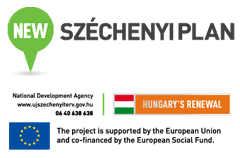The Qualification and Skills’ Passport (QSP) project aims at the build-up of a unified platform for the support of workforce migration inside the European Community in the hospitality sector with the mobilization of up-to-date IT solutions and in strong coordination with the already present efforts of the Community (mainly the EURES network and the Europass system).
The QSP project is a joint effort of the organizations HOTREC (It is the trade association of hotels, restaurants and cafés in the European Union.) and EFFAT (European Federation of Food, Agriculture and Tourism Trade Unions), the Tourism Policy of the EU and the World Tourism Organization.
The QSP project aims at the support for the better flow of information between employers, employees. contributes to the decision making process of employers, collects and distributes up-to-date and reliable job market information, concerning different skills, experiences and competences of employees that are well defined; as well as the specified global, unified database of jobs with well organized, searchable and verified content. It is an application of up-to-date “semantic” and distributed computing solutions Solutions for problems arising from localization and language differences). Enhancement of the coordination of education and special training systems of countries and regions.
The results of the project were a final model of the QSP; skills’ lists for each area of services in the hospitality sector, translated into the languages of the pilot countries; study on the handling of personal data and on technical issues; identification of the countries interested in participating in the experimentation phase of the QSP: Italy, Hungary, Malta, Spain; established contacts with Commission services in charge of other European instruments on qualification and training (DG EAC, CEDEFOP).
The next steps will be the experimentation of the QSP in the 4 pilot countries. Based on the results of the project the follow up would encompass e.g.: the setting up of a host server for the QSP; the setting up of national QSP help desks; the training on the running of the QSP system; the dissemination of the information about the QSP to workers and employers/companies in the hospitality sector; the testing of the QSP in the field; the improvement of the QSP based on the experience; suggestions for the rolling out of the QSP to more countries or in other contexts.
Related materials
About the QSP project in OECD Tourism Trends and Policies 2012 (p91.)
Publications:
- Kiss Ferenc: Kompetenciahálózatok alkalmazása az EU munkaerőpiacán. Magyar Tudományos Akadémia Tudásmenedzsment Workshop, Gödöllő, 2008. március 28.
- Kiss Ferenc – Váradi Márk: Ontology Based Quality and Skill Administration Supporting European Labour Mobility. 30th International Conference on Information Technology Interfaces, Cavtat/Dubrovnik, Horvátország, 2008. június 23-26. (poszter)
- Kiss Ferenc: European Qualification and Skills Passport – an Internet based solution. „Társadalom és Gazdaság – új trendek és kihívások” Nemzetközi Tudományos Konferencia. Baja, 2008. szeptember 19. In: Kovács Beatrix (szerk.): Társadalom és gazdaság – új trendek és kihívások. Eötvös József Főiskola Műszaki és Gazdálkodási Fakultás Gazdaságtudományi Intézet, Baja, 2008. pp. 357-360. (ISBN:978-963-72909.
- Kiss Ferenc: European Qualification and Skills Passport – an Internet based solution. In: Noszkay, E. (ed.): The capital of intelligence – the intelligence of capital. Foundation for Information Society, Budapest, March, 2009. ISBN: 978 963 87788 2 6. pp. 167-176.

